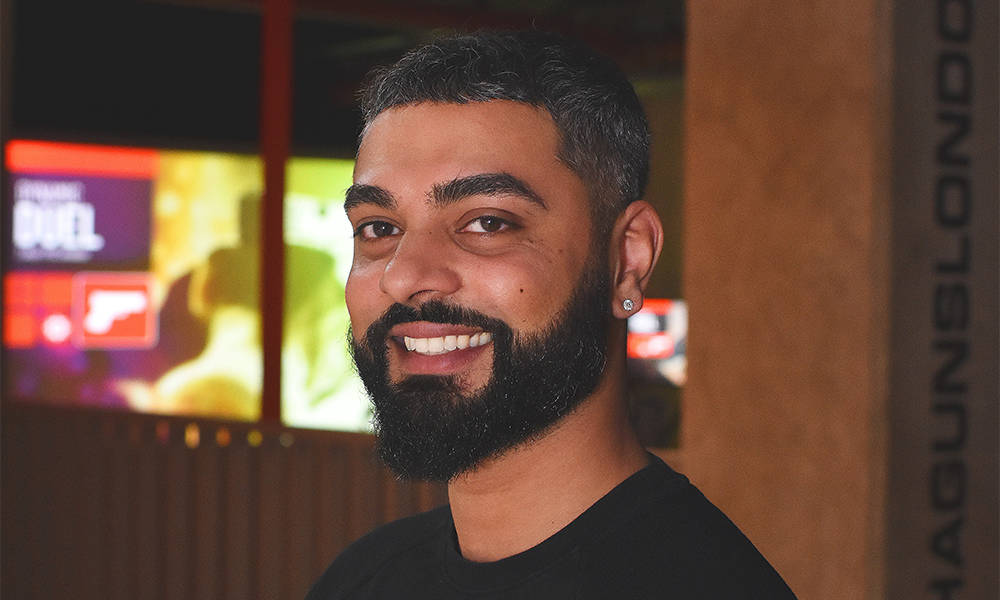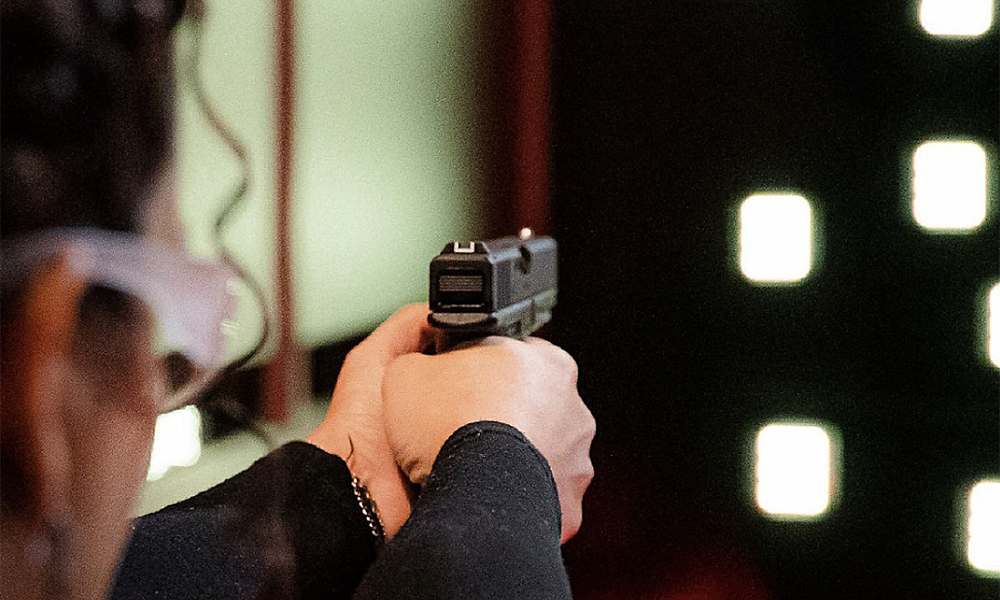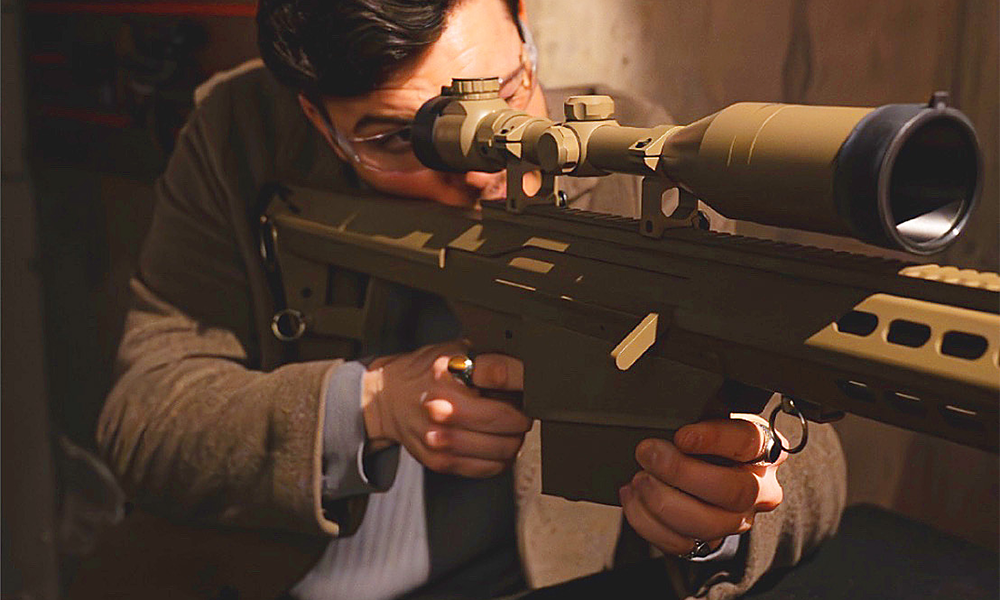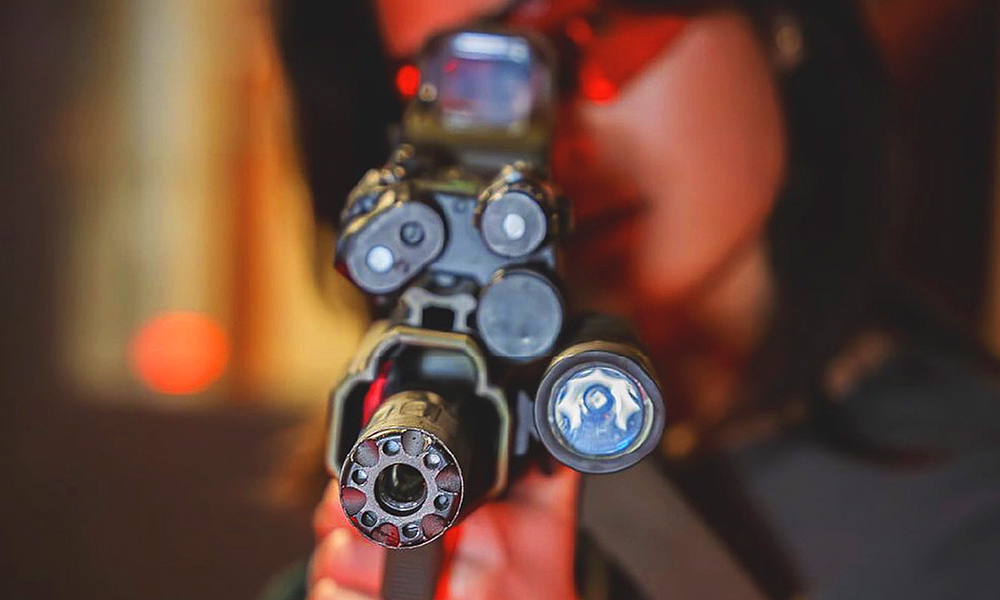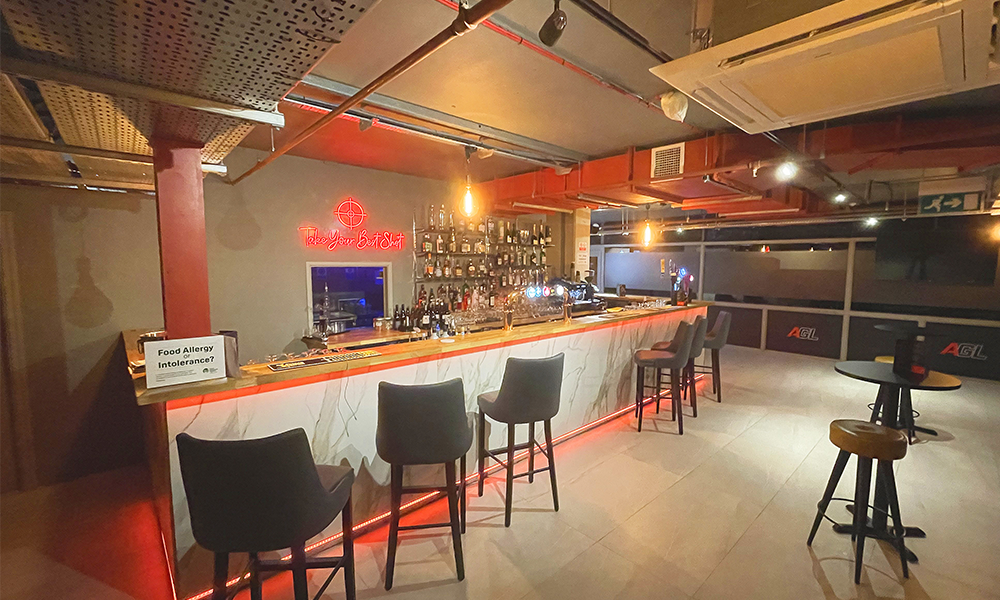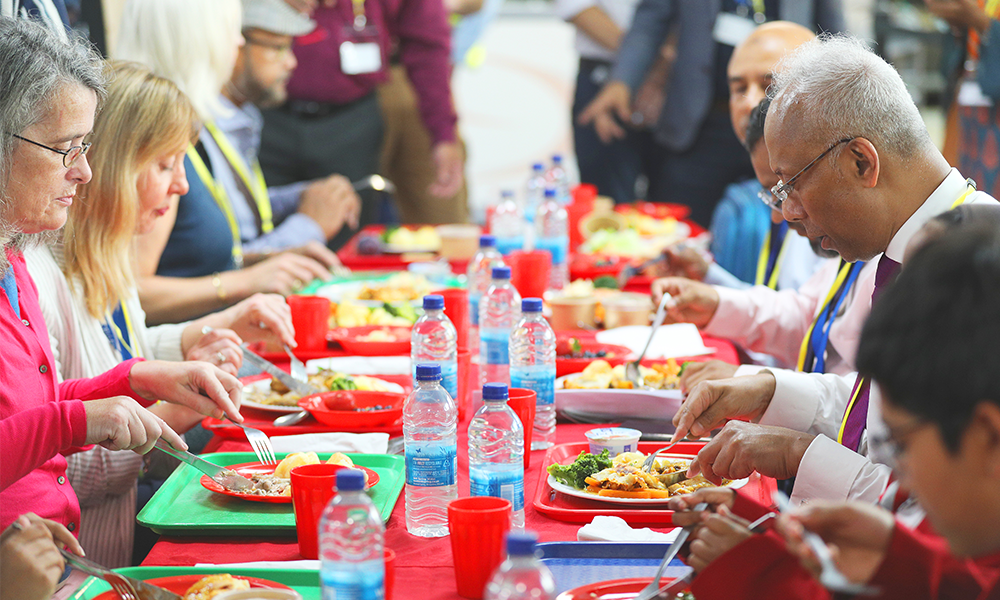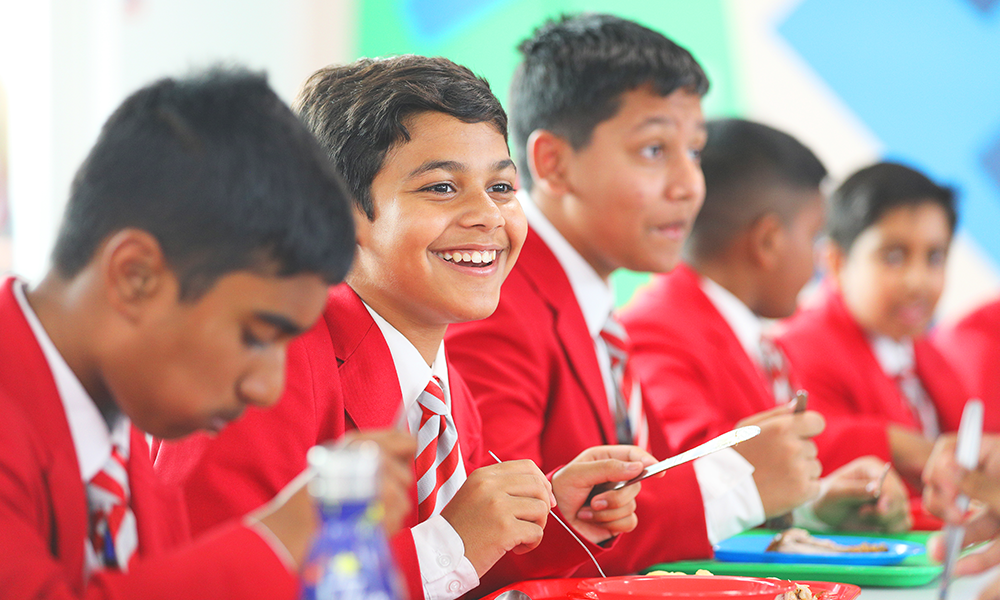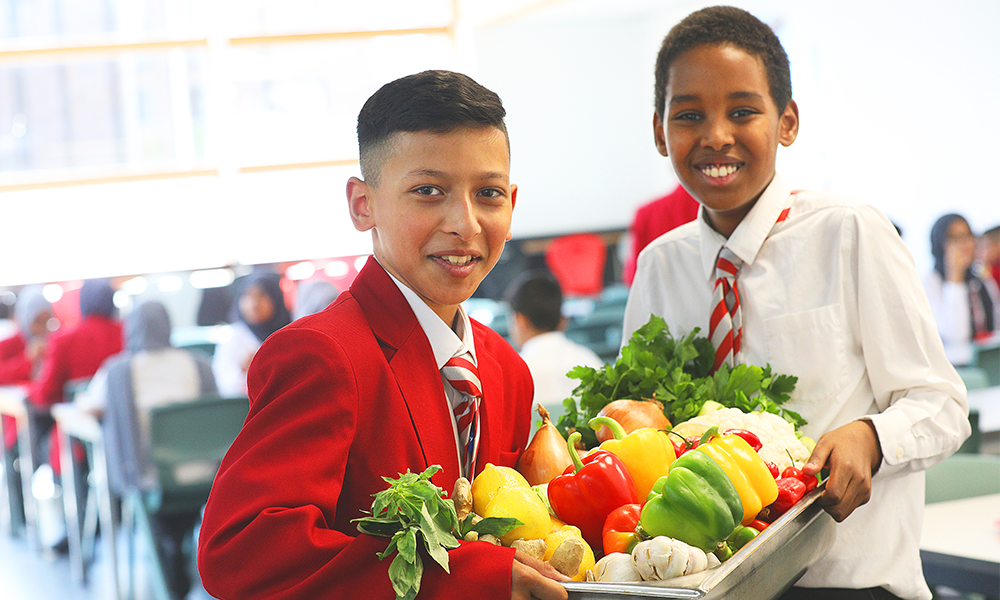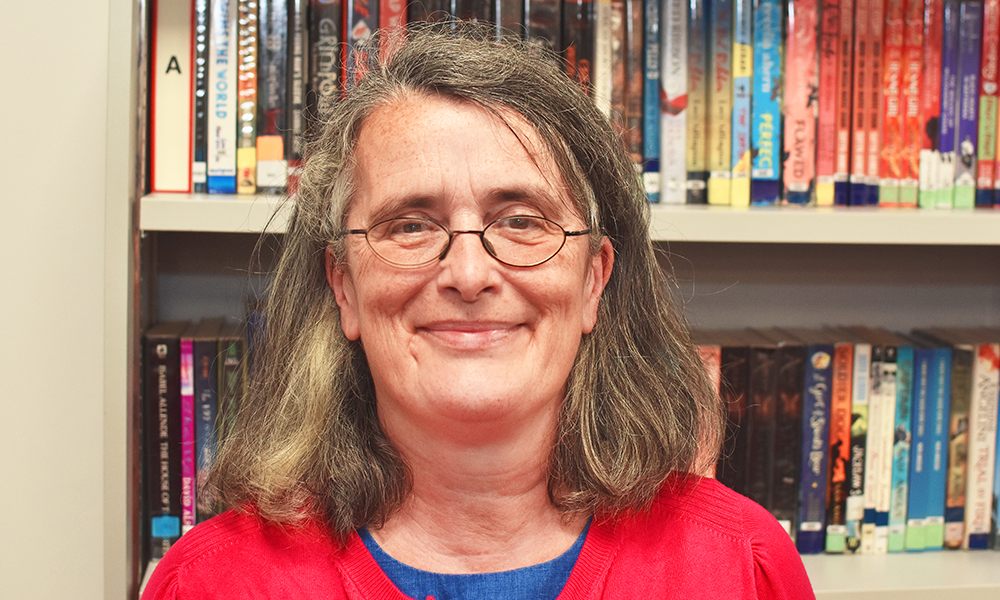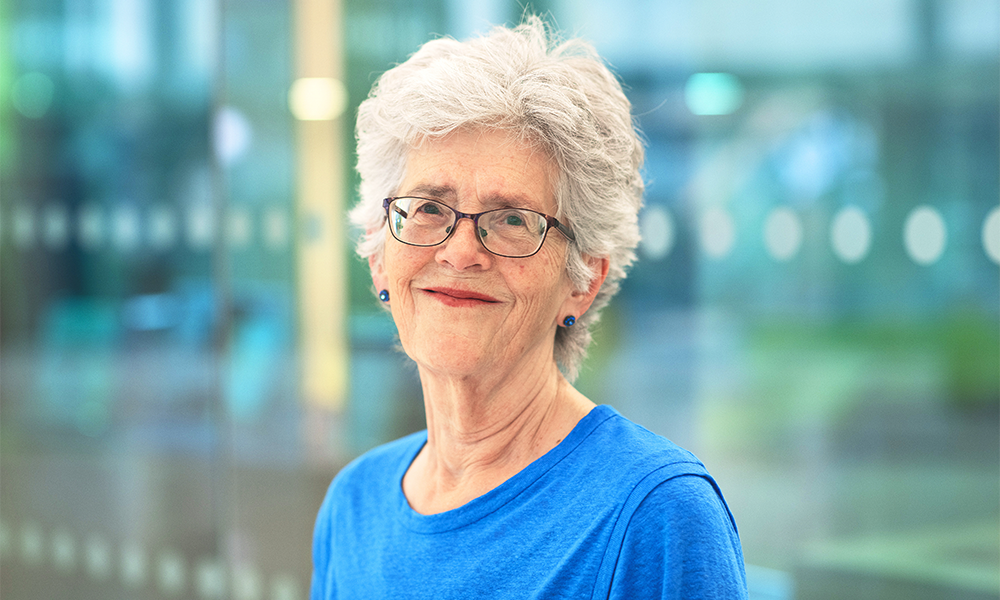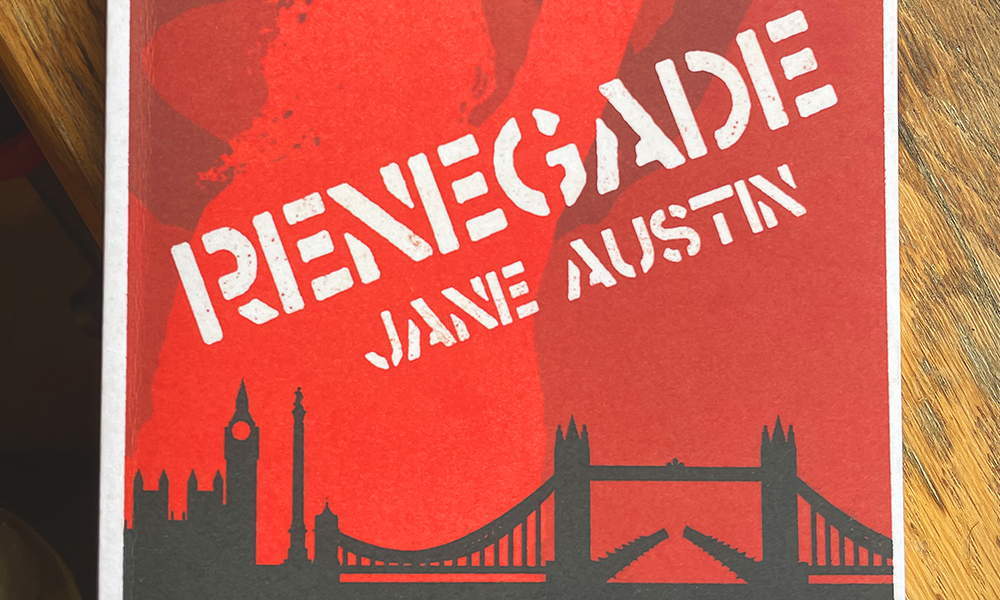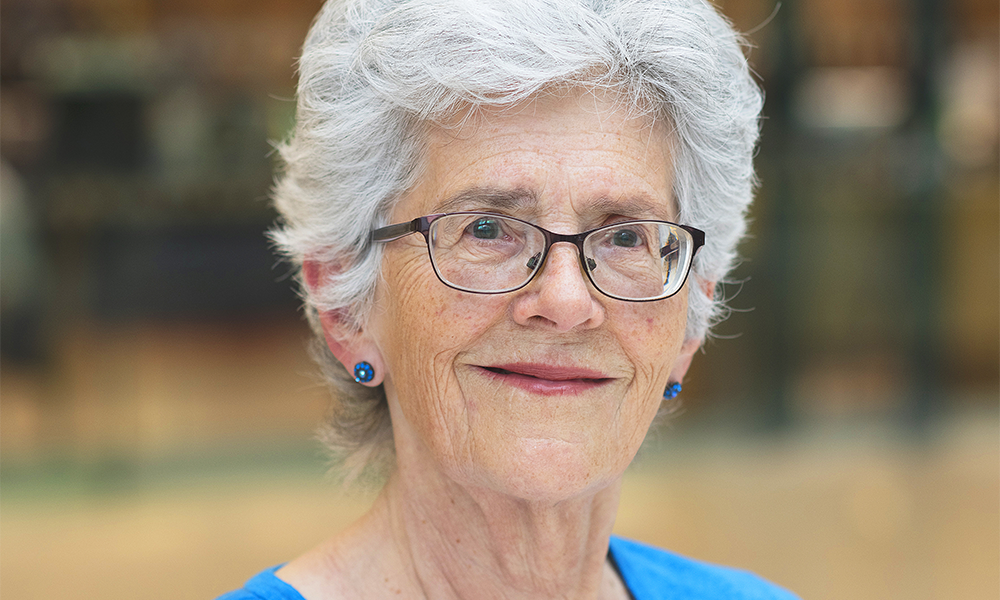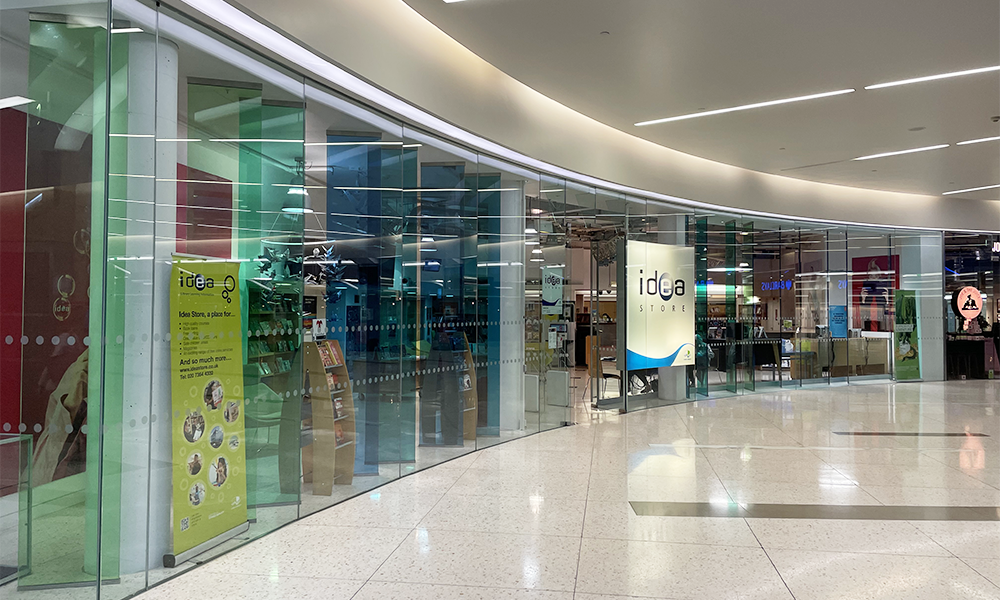Built-to-rent apartments come with access to communal roof terrace, gym, screening room and workspace plus easy access to the Elizabeth Line
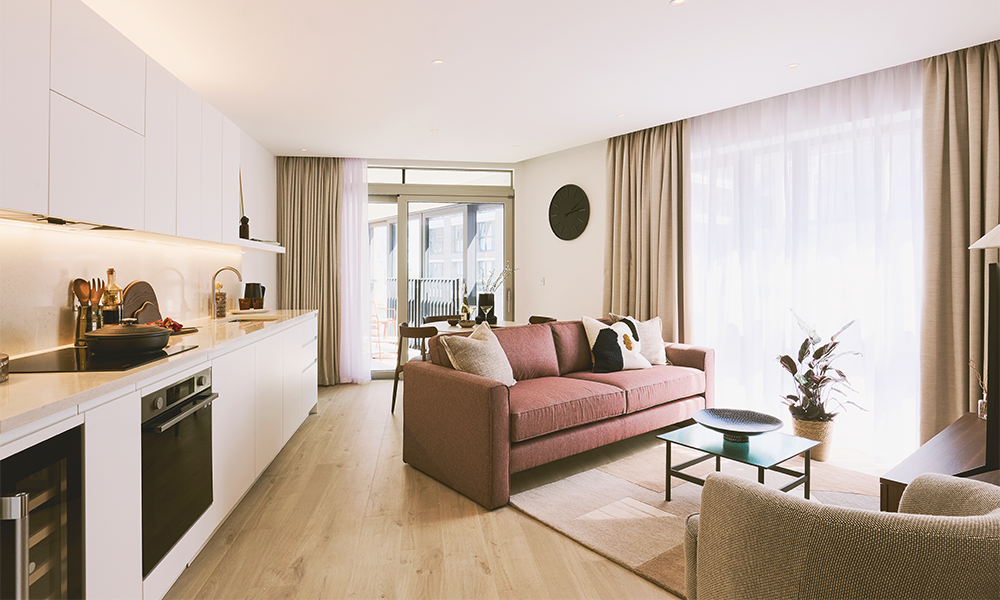
Subscribe to our free Wharf Whispers newsletter here
“There’s a real difference between renting from a private landlord and from a build-to-rent company,” said Amelia Polowyj of Native Residential, the company British Land has engaged to manage its Alma scheme at Aldgate East.
The sharp angles of its triangular tower on the corner of Whitechapel High Street and Commercial Road house some 159 apartments, each available to let for up to 24 months.
Sprinkled with a wealth of amenities, it’s a 24/7 operation with its own bespoke scent and work on its walls from local artists.
“One of the benefits is having a dedicated team on-site you can speak to face-to-face if there are any issues in the property,” said Amelia, Alma’s general manager.
“As build-to-rent becomes a bigger part of the market as it has done in America, it will showcase why it’s a good option.
“For example, we have people moving from overseas who aren’t familiar with London, so having someone on reception who can recommend their favourite restaurant or local service is great.
“That joins up the dots and isn’t something you can find in private rental.”
It’s a topic that Amelia is passionate about having moved from the world of retail to property.
Initially she managed high-end student accommodation and then build-to-rent properties in and around Manchester.
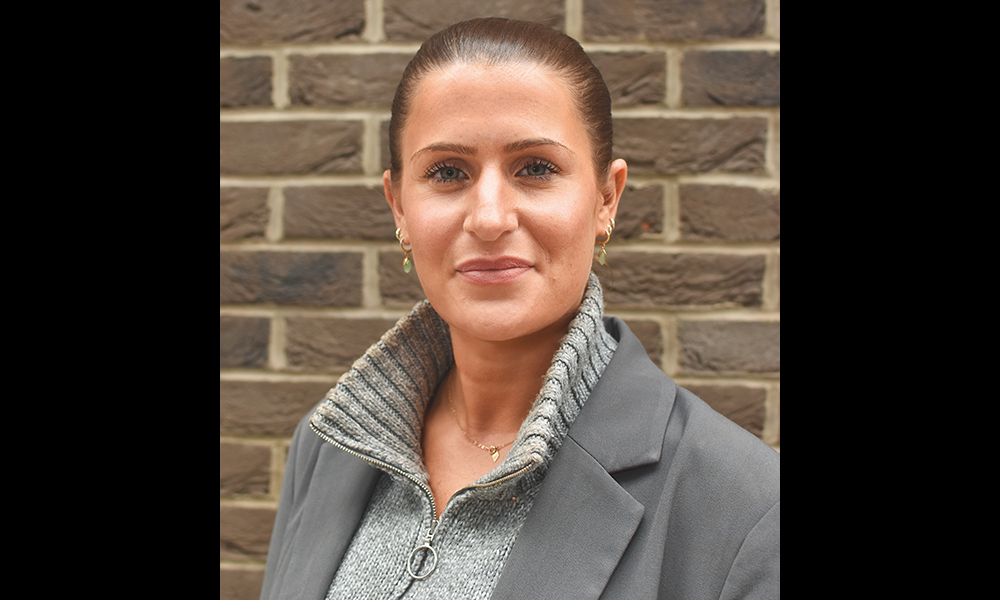
delivering on customer service at Alma
“It was while I was at Vita Living that a resident handed me a letter on her final day with us,” said Amelia.
“She wanted to convey how much it had meant to her that from her very first week I’d remembered her name and apartment number when she came to talk to us.
“That was so impactful to me – that something I would describe as simply good customer service, had meant so much to her. It demonstrates the kind of service people can expect.”
Amelia said that while people in rental schemes in Manchester were largely waiting to buy, the London market at developments like Alma was different.
“People here are very content to rent as a choice,” she said. “Alma, for instance, is very much at the upper end of the market.
“We provide as much of a tailored experience here as is humanly possible – it’s a premium living product.
“We’re the first operator to launch in Aldgate East and will be 25% occupied by the end of the year. Every apartment comes with a full suite of integrated appliances.
“There are American-style fridge-freezer, wine coolers, comfort cooling, washer-dryers and underfloor heating in the bathrooms.
“All of the appliances are smart so you can control them from your phone – turning on your oven while you’re on your commute so it’s ready to cook when you get home.
“The homes all have either a winter garden or terrace depending on the layout, the former offering tenants the best of both worlds and making the space a genuine extension of the apartment.
“The architects have been careful to ensure all bedrooms are a good size to cater for people who are sharing.
“The furniture, which is included in the price alongside Samsung Smart TVs, has been designed and curated so as not to overwhelm the rooms.
“The designers have really thought about the logistics – how someone’s going to use the space.”
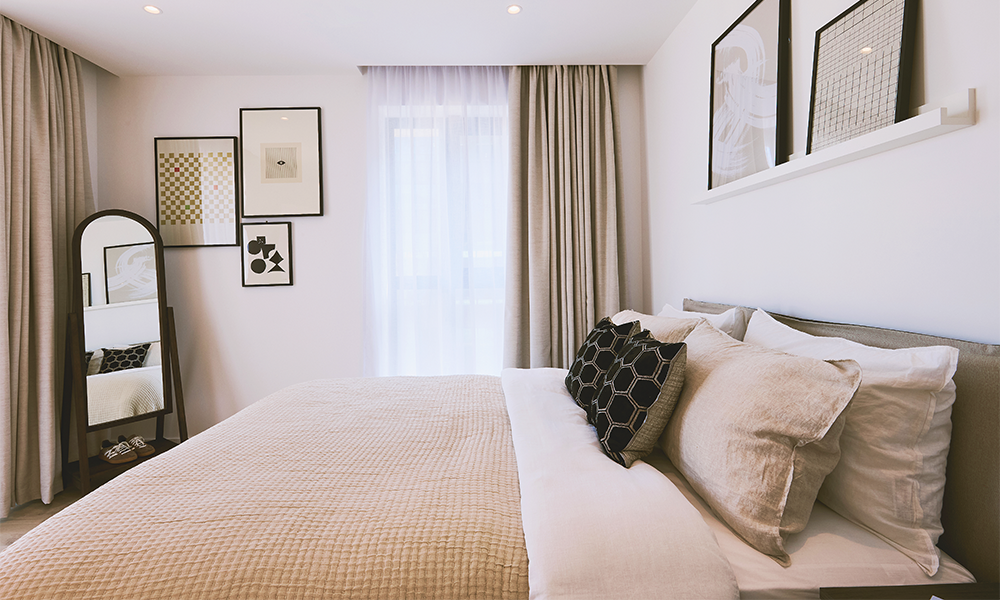
residents’ facilities
Beyond each apartment, the development offers a wide selection of facilities for residents to use.
There’s an expansive triangular roof terrace complete with sun loungers and views towards the City and the East End, a lounge for relaxation that doubles as a private kitchen and dining room and a screening room for when the Samsung TV isn’t quite enough.
There’s also a small gym and a shared workspace on the ground floor with bookable pods for those who need privacy.
Alma is pet-friendly, with no extra charges for those who like to live with animals and boasts its own service app with features such as dry cleaning and dog walking.
“Everything’s been thought through in great detail, even if residents won’t necessarily notice immediately,” said Amelia.
“The furniture in the apartments and the communal areas is all sustainable and has been designed to be easily repairable should the need arise.”
Besides the facilities, Alma’s greatest attraction is perhaps its location.
The Monopoly board is looking very much out of date, with Whitechapel an increasingly desirable part of town thanks to its walking-distance proximity to the City, extensive regeneration locally and impressive transport links resulting from the arrival of the Elizabeth Line.
The latter offers a three-minute connection to Canary Wharf after a 10-minute walk and a direct route to much of central London as well as Heathrow Airport.
The scheme is also within walking distance of the Square Mile’s offices, the vibrancy of Shoreditch and the historic sites of Tower Hill.
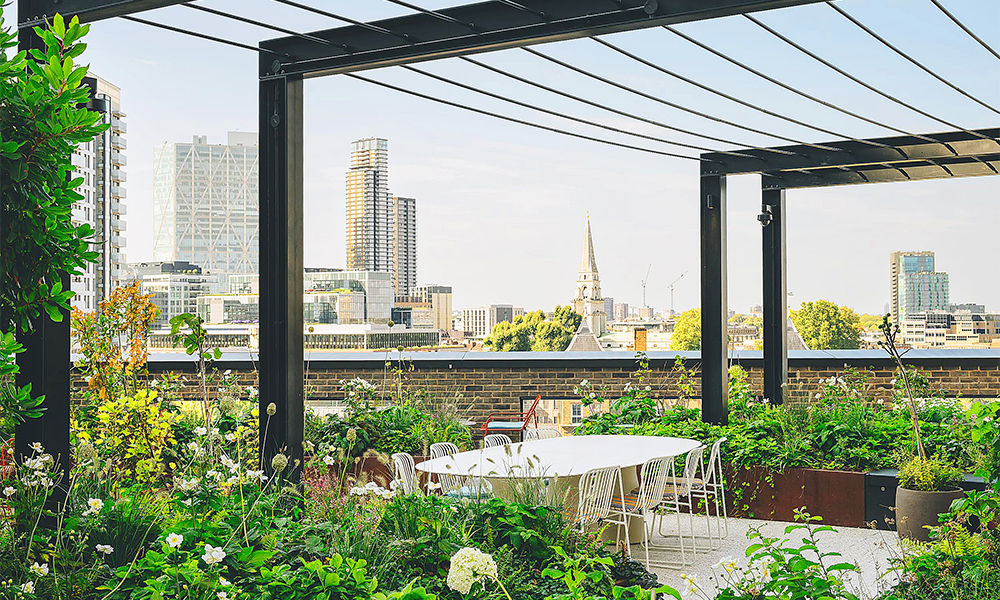
work-life balance at Alma
“More than ever, especially following the pandemic, people are starting to understand the value of work-life balance,” said Amelia.
“Having the ease of a 10-minute walk to and from work is a massive positive.
“And there’s so much to do in the local area – we have a community host who has set up a network of neighbourhood heroes so our residents can get benefits from local businesses.
“Right now it’s about getting the Alma brand out there.
“We have a cap on the number of students we’ll take as tenants at about 20% because we want to ensure a mix with professionals in the building.
“We already have quite a few corporate clients and we’re aiming for a nice balance, with short stays also available on the 11th floor so people can try out life at Alma.”

key details: Alma
Alma is located on the corner of Whitechapel High Street and Commercial Road close to Aldgate East Tube Station.
The build-to-rent development comprises 159 apartments with prices starting at £2,950 per month for a studio.
One-beds start at £3,325, while two and three-beds are £4,172 and £5,488 respectively.
The duplex penthouse is currently on the market for rent at just under £10,000.
Find out more about the development here
Read more: How Mike Joslin’s Bombe uses tech to help companies understand customers





